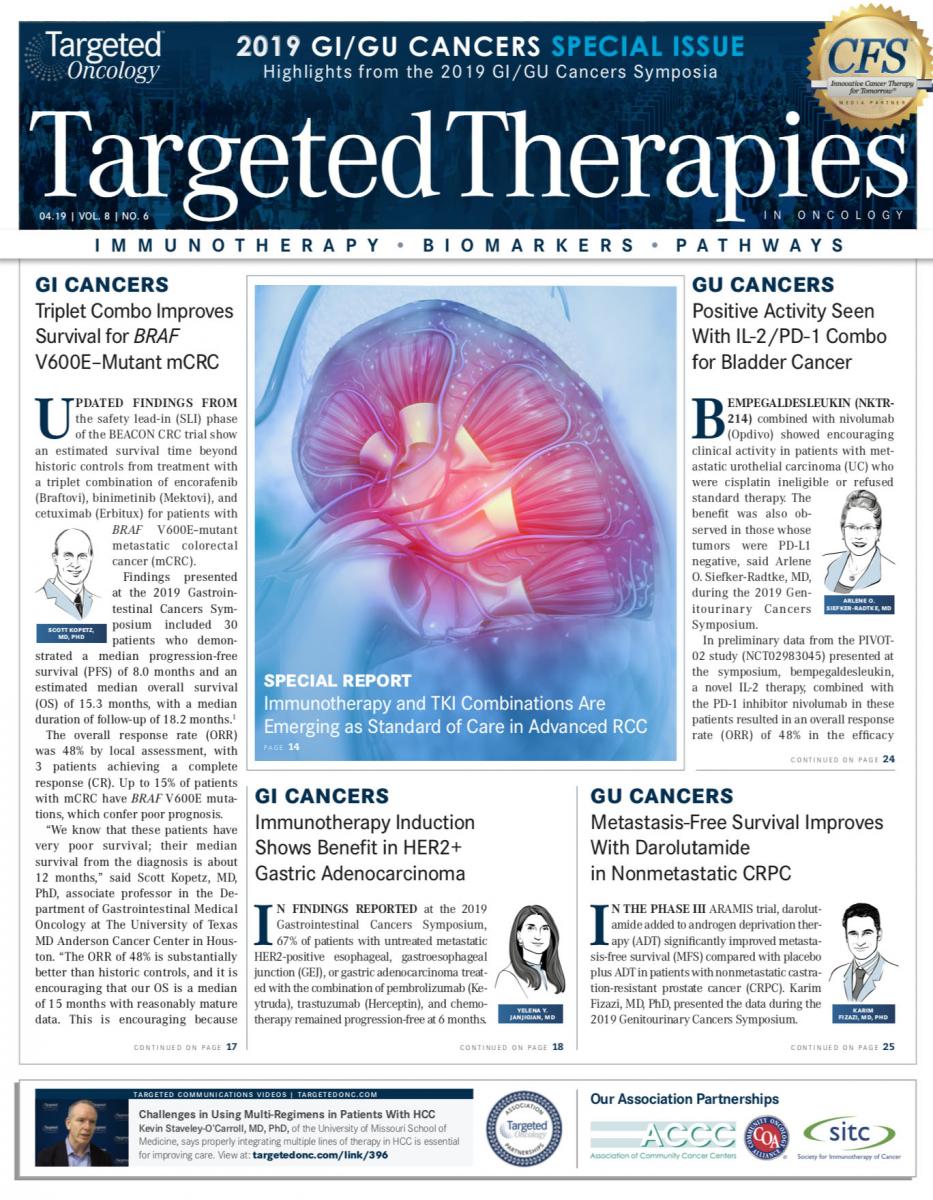Balar Shares Perspective on Key Findings From His Presentation at the 2019 GU Cancers Symposium
Arjun V. Balar, MD, discusses key findings from updated data from the interim analysis of KEYNOTE-057, a phase II single-arm trial of pembrolizumab (Keytruda) in Bacillus Calmette-Guérin-unresponsive, high-risk nonmuscle-invasive bladder cancer, which he presented during the the 2019 Genitourinary Cancers Symposium.
Arjun V. Balar, MD
At the 2019 Genitourinary Cancers Symposium, I had the privilege of presenting updated data from the interim analysis of KEYNOTE-057, a phase II single-arm trial of pembrolizumab (Keytruda) in Bacillus Calmette-Guérin (BCG)-unresponsive, high-risk nonmuscle-invasive bladder cancer (NMIBC).1Cohort A of the trial focused on patients with carcinoma in situ with or without papillary disease, which represents the largest population of patients with bladder cancer and the group that is at highest risk for progression to invasive, and potentially metastatic, disease if BCG fails.
The data were promising, demonstrating a 40% complete response (CR) rate to pembrolizumab at the 3-month evaluation as defined in the protocol. Over half of these responses were durable beyond 9 months, suggesting that there is clear activity for pembrolizumab in this population that is historically managed with radical cystectomy. For reference, the only FDA-approved agent for BCG-unresponsive high-risk NMIBC is valrubicin (Valstar), and that has a 20% CR rate and responses that are rarely durable. Therefore, these data from KEYNOTE-057 could be practice-changing.
However, these were interim data and included only the first 102 patients enrolled out of the planned 120 for the cohort, and median follow-up was just short of 16 months. Rightfully so, some cautioned about overinterpretation of these results given the incomplete data and relative immaturity since early-stage bladder cancer has a long natural history and responses are common even with salvage agents, such as intravesical chemotherapy.
Therefore, we must temper our enthusiasm for now; but if these data hold up, they could mean a complete paradigm shift in how we manage patients with early-stage bladder cancer. Other studies are ongoing, including testing PD-1/L1 blockade in combination with BCG at first diagnosis of high-risk NMIBC, which may lead to even better outcomes. What is particularly unique about this novel approach is the use of a systemic immune agent with a PD-1/L1 antibody in a disease that has historically been managed by local therapy, administered intravesically, which generated a local immune response.
One of the key principles of cancer biology we teach trainees is to think of the cancer as a potentially systemic disease at its outset. Even in NMIBC, up to 10% of patients develop metastases. And we know from trials of pembrolizumab in metastatic urothelial cancer that up to 29% of patients will have responses, many of which will be durable.2,3Perhaps the broader lesson being learned from the early data from KEYNOTE-057 is that systemic as well as local immunotherapy is the best way to illicit an effective immune response to potentially cure the disease and help more patients keep their bladders. Only time will tell, and I am certainly eager to see how the data shape up.
References:
- Balar AV, Kulkarni GS, Uchio EM, et al. Keynote 057: phase II trial of pembrolizum- ab (pembro) for patients (pts) with high-risk (HR) nonmuscle invasive bladder cancer (NMIBC) unresponsive to bacillus calmette-guérin (BCG). J Clin Oncol. 2019;37(suppl 7;abstr 350): doi: 10.1200/JCO.2019.37.7_suppl.350.
- Balar AV, Catellano D, O'Donnell PH, et al. First-line pembrolizumab in cispla- tin-ineligible patients with locally advanced and unresectable or metastatic urothe- lial cancer (KEYNOTE-052): a multicentre, single-arm, phase 2 study. Lancet Oncol. 2017;18(11):1483-1492. doi: 10.1016/S1470-2045(17)30616-2.
- Bellmunt J, de Wit R, Vaughn DJ, et al; KEYNOTE-045 Investigators. Pembroli- zumab as second-line therapy for advanced urothelial carcinoma. N Engl J Med. 2017;376(11):1015-1026. doi: 10.1056/NEJMoa1613683.

Survivorship Care Promotes Evidence-Based Approaches for Quality of Life and Beyond
March 21st 2025Frank J. Penedo, PhD, explains the challenges of survivorship care for patients with cancer and how he implements programs to support patients’ emotional, physical, and practical needs.
Read More
Survivorship Care Promotes Evidence-Based Approaches for Quality of Life and Beyond
March 21st 2025Frank J. Penedo, PhD, explains the challenges of survivorship care for patients with cancer and how he implements programs to support patients’ emotional, physical, and practical needs.
Read More
2 Commerce Drive
Cranbury, NJ 08512
All rights reserved.